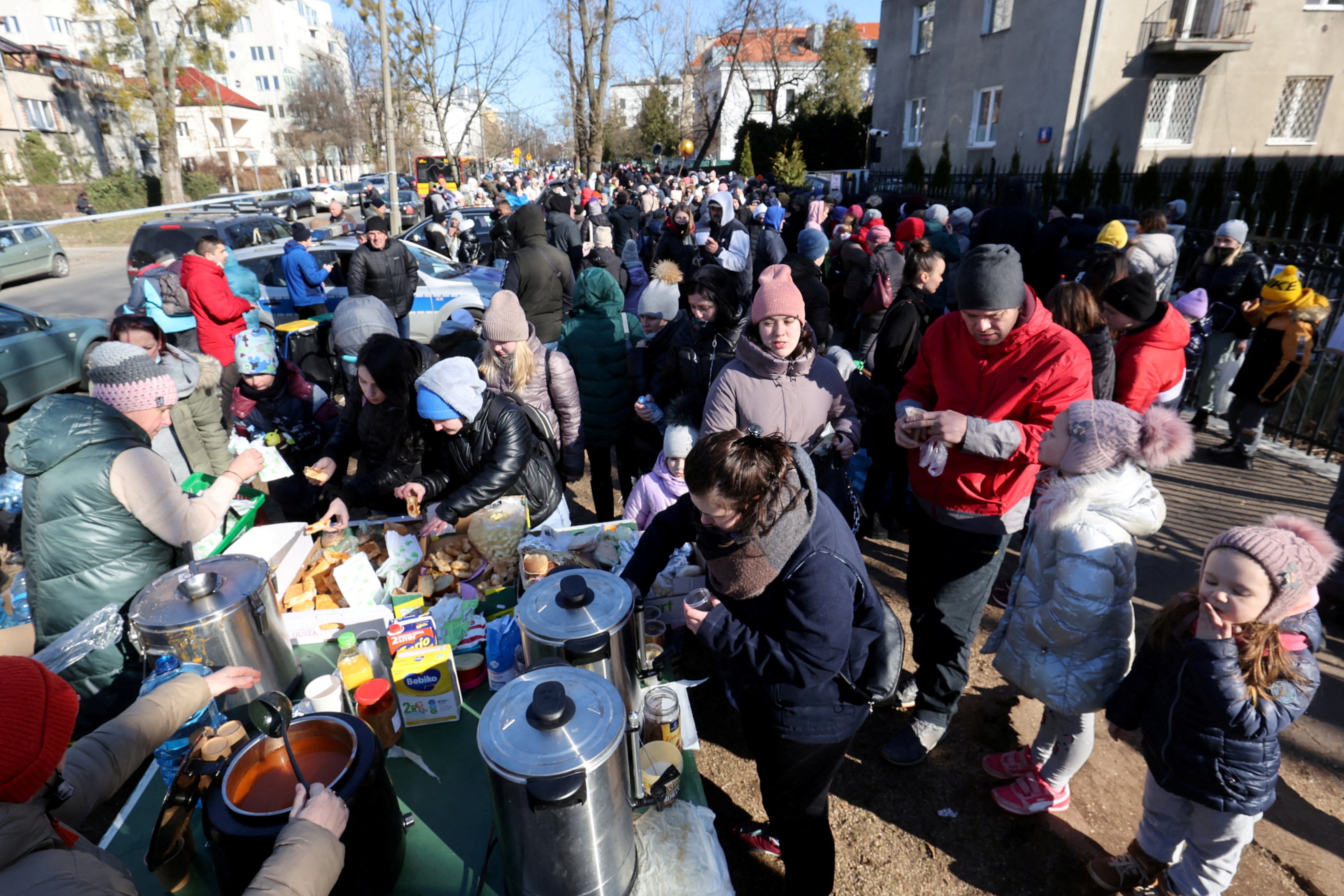The public wants a generous approach to welcoming Ukrainian refugees – the government must think again
Editorial: UK ministers trumpet that there is ‘no cap’ on the number of Ukrainian refugees they will allow to enter the country but the bureaucratic system amounts to a cap, in effect, by limiting the numbers

Andrii Zharikov, a Ukrainian who is a senior lecturer at the University of Portsmouth’s law faculty, has abandoned his plan to bring his sister and mother to the UK, having been defeated by red tape. Although the government allows Ukrainians to bring family members here, it does not apply to people like Mr Zharikov, who has a work visa – even though Sajid Javid, the health secretary, claimed this week that it did.
Home Office guidance says family members can apply to join a UK-based relative, but only if the relative is a British national, has some form of settled status in the UK, has pre-settled status from an EU country or Iceland, Liechtenstein, Norway or Switzerland, or is entitled to refugee status or humanitarian protection in the UK. The government should think again about those with work visas.
“I was appalled by the way it has been presented, with the government saying it has an open-door policy, but the scope is very, very limited,” said Mr Zharikov. “I am very grateful for the EU approach, and I know my family will stay in the EU because of this and they are better off there, and I will do my best to look after them by sending money.”
UK ministers trumpet that there is “no cap” on the number of Ukrainian refugees they will allow to enter the country, but the bureaucratic system amounts to a cap, in effect, by limiting the numbers.
So far, 6,500 refugees have been allowed entry to Britain under the Ukraine family scheme, out of the 27,000 applications submitted.
The contrast with EU countries is stark, even allowing for the fact that many Ukrainians want to remain close to their country because they want to return. More than 2 million of the 3.2 million people who have so far left Ukraine have entered Poland. More than 197,000 refugees have been registered in Germany. More than 17,000 have arrived in France, which expects to welcome between 50,000 and 100,000. Ireland has already accepted more than 7,000, a response that should embarrass the UK government.
The EU’s welcome decision to waive visa restrictions has not been copied by the UK. Ministers cite the need for security checks. Although they may have a point, this does not excuse the government being so slow to dismantle the bureaucratic hurdles stemming from its initial mistake of tweaking the existing system rather than creating a new one.
Another managed migration scheme does not measure up to the biggest refugee crisis since the Second World War. The irony is that the government should have seen it coming; unlike countries on the continent, the UK, along with the US, had been warning for weeks that Vladimir Putin planned to order the invasion of Ukraine.
The UK is now lagging badly behind EU countries. Although Priti Patel, the home secretary, has belatedly cut some red tape, some of her proposals to allow in more refugees have been blocked by Downing Street. The suspicion is that Boris Johnson prefers to fight the last war – the one about Brexit – rather than the real one against Russia, and wants to remind voters that its departure from the EU has allowed the UK to “take back control” of its borders.
Yet opinion polls show that the public wants a much more generous approach to welcoming Ukrainian refugees than the government has managed to date.
That generosity has been demonstrated by the remarkable response to the Ukraine sponsorship scheme, under which Britons can take refugees into their own homes. Some 147,513 people have registered in the UK – 122,390 in England, 8,625 in Scotland, 10,236 in Wales and 6,262 in Northern Ireland.
Yet the government has left it up to hosts and refugees to find each other. Although charities will help in the matching process, what Labour has rightly called a “DIY asylum scheme” will not be easy to navigate, and this is bound to limit the number coming to the UK.
Many practical problems are emerging. If they are to ensure that Ukrainians can be housed from early next week, local authorities will not have time to check every home taking in a refugee. There are fears that human traffickers will exploit the crisis. For some people who have offered space in their homes, there are more questions than answers. Will traumatised refugees, particularly children, get all the support they need? How will language problems be addressed? What happens if hosts and refugees don’t get on?
Of course, the government has had to act quickly under great pressure, and was always going to have to learn as it went along. But there is still time for it to be more generous and flexible than it has been so far, in line with The Independent’s Refugees Welcome campaign and the wishes of a majority of the British people.
The Independent has a proud history of campaigning for the rights of the most vulnerable, and we first ran our Refugees Welcome campaign during the war in Syria in 2015. Now, as we renew our campaign and launch this petition in the wake of the unfolding Ukrainian crisis, we are calling on the government to go further and faster to ensure help is delivered. To find out more about our Refugees Welcome campaign, click here. To sign the petition click here. If you would like to donate then please click here for our GoFundMe page.






Join our commenting forum
Join thought-provoking conversations, follow other Independent readers and see their replies
Comments